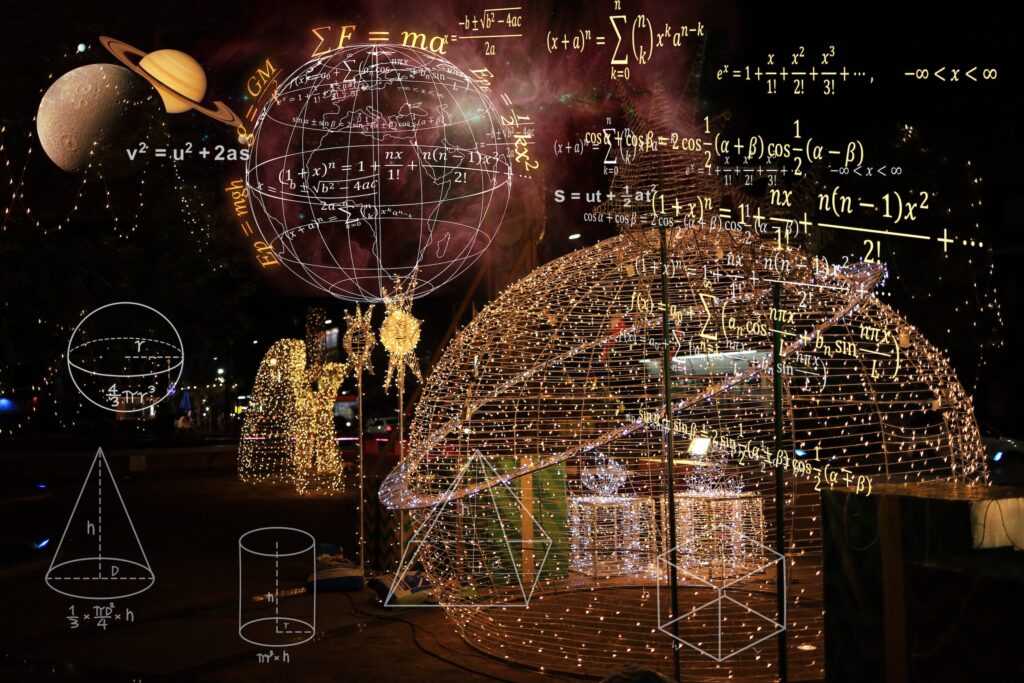|
In this interview, Dr. Philip Cozzolino, an associate professor of psychiatry and neurobehavioral sciences at the University of Virginia, talks with Natalia Vorontsova about his research results and methods for dealing with the fear of death. He also delves into intriguing reincarnation-like cases and past-life memories in children, as well as the metaphysical implications of his research.
|
In this very personal, poignant essay, Moreira argues that our most primal fear isn’t death, but solitude. As he says, “A child does not cry because she understands mortality. She cries because no one comes.” Moreira is redefining Existentialism for the 21st century. He mines and distills the core questions of meaning in a world that is beginning to intuit the shallowness of its ways.
|
Dr. David Schmid, Dr. Lídia Del Rio and Hans Busstra explore a metaphysical shift that’s happening in the foundations of physics: the wave function is no longer regarded as something real, but just as a description of what we know about the world. In philosophical terms: the wave function is not ontic, but epistemic. And in more popular terms: the multiverse is science fiction, resting on a too-literal interpretation of a piece of mathematics called the Schrödinger equation.
|
The jealous and alienating gnostic Demiurge, a certain mode of attending to the world described by Heidegger, and Iain McGilchrist’s characterisation of the brain’s left-hemisphere, all share remarkable similarities, according to Arthur Haswell. He suggests thus that the Demiurge may be a symbol of something that lives in us, modulating how we relate to others and the world at large. As such, the holistic perspective of the right hemisphere may be a corrective that brings us closer to the transcendent and truly divine.
|
What if phenomenal consciousness, signs, communication, and interpretation are fundamental aspects of all living systems, whether or not we can detect brains? This is the departure point of biosemiotics, an interdisciplinary field that combines biology, semiotics (the study of signs and meaning), and philosophy. Environmental philosopher Dr. Yogi Hendlin is Editor-in-Chief of the Journal of Biosemiotics and, in this conversation, Hans Busstra talks to him about the widespread meaning-making in nature. All living beings, from bacteria to plants to mammals, have an ‘Umwelt,’ a dashboard representation of the world. In a sense, biosemiotics states that our mind is in the world: we are embodied beings, and with every inhalation 50.000 microbes enter our body, and they communicate to us by influencing our microbiome.

Do we really live in a fundamentally physical universe? Are we essentially material beings? Essentia Foundation is a new force in the cultural dialogue about the nature of reality. Find out more about us.
|
Professor Zaghi introduces Relational Quantum Dynamics (RQD), a further development of Carlo Rovelli’s Relational Quantum Mechanics (RQM) with a solid mathematical and metaphysical basis. RQD circumvents the infinite regress inherent to RQM (everything being constituted of relations between meta-relations, and these consisting of relations between meta-meta-relations, etc., ad infinitum) by proposing that, although all physical entities are indeed relational, the relations—and even spacetime itself—arise within an underlying field awareness.
|
This is an involved, fairly technical, but deeply rewarding and potentially groundbreaking essay. It posits that the geometry of real (i.e., noumenal) spacetime may be exactly what our mathematical models tell us it is: a complex projective space in which there is no separation between objects and subject. If so, then the implication is that the foundation of the universe is a form of universal consciousness, that the ordinary spacetime we experience is but a perspectival model, and that the very structure of the universe is defined by mental archetypes, or universal ‘ideas.’ Right or wrong, this is one of the most daring but also most explicit and well-articulated ideas underpinning idealism with physical theory, and it surely deserves multiple careful reads.
|
Astronomer Harriet Witt argues that it is our scientifically outdated language that leads us into thinking of the sky as a remote reality ‘up there,’ instead of a felt experience ‘in here.’ She argues for an update to the words and concepts we use daily, so the holistic reality of our existence, and of our intimate relationship with all of nature, can again be felt.
|
In our quest for meaning and self-understanding, language remains a valuable tool, but we must recognize its limitations. By balancing our conceptual and perceptual selves, we can live more fully, appreciating life beyond the distortions of thoughts and words. In doing so, we reconnect with the dimension of existence we have long suspected: one that’s whole and prior to the concepts of time and location, argues Steven Pashko.
Would you like to submit an essay?
|
Dr. David Schmid, Dr. Lídia Del Rio and Hans Busstra explore a metaphysical shift that’s happening in the foundations of physics: the wave function is no longer regarded as something real, but just as a description of what we know about the world. In philosophical terms: the wave function is not ontic, but epistemic. And in more popular terms: the multiverse is science fiction, resting on a too-literal interpretation of a piece of mathematics called the Schrödinger equation.
Seeing
Videos
|
Documentary filmmaker Hans Busstra shares with us, with the aid of amazing and scientifically accurate animations of the molecular world, the background story of his journey from imaging the hardcore science of molecular biology to the fundamental insights of metaphysics.
|
Prof. Dr. Caslav Brukner, Prof. Dr. Renato Renner and Dr. Eric Cavalcanti just won the Paul Ehrenfest Best Paper Award for Quantum Foundations. Their different no-go theorems make us reconsider the fundamental nature of reality. Bell’s theorem in quantum mechanics already confronted us with the fact that locality and ‘physical realism,’ in the sense that particles have predetermined physical properties prior to measurement, cannot both be true. But in certain variations of the Wigner’s Friend thought experiment an additional metaphysical assumption is now also put in question: the absoluteness of facts. In different words: can we safely assume that a measurement outcome for one observer is a measurement for all observers?
|
Can we turn off our awareness (i.e., conscious metacognition) in meditation and then stay in that state for days without water, food, or going to the bathroom? A recent study by Dr. Ruben Laukkonen on the cessation of awareness in advanced meditation practitioners confirms this. In this interview, Natalia Vorontsova talks with Ruben about his research and its implications for our understanding of the nature of reality. This is a deep, yet light-hearted, conversation about mind, consciousness, time, AI, and the future of science, especially since Ruben is also an experienced meditation practitioner.
From the archives
|
“If experience is all I have, I may be alone—but the essential emotional necessity of the other demands that I live as if I am not,” argues Dr. Moreira in this heart-felt essay. He embodies a long-overdue reemergence of existentialist thought in the 21st century and, as an active and successful AI scientist, in 21st century terms. We think both the worlds of philosophy and popular culture will be hearing a lot more from Dr. Moreira in the coming years…
|
Dr. Edward Kelly, a professor of experimental psychology, talks about his many years of study of a variety of psi and anomalous phenomena. In this interview with Natalia Vorontsova, he candidly shares how phenomenological evidence has led him to re-examine his metaphysical views on the nature of reality. Are our minds confined to our brains? Do we survive our biological death? Is mind primary to matter? Why should we take anomalous phenomena seriously? These are some of the topics covered in this conversation.
|
Fredric Nord argues that knowing reality through language is fundamentally and inescapably a misunderstanding of reality. We misunderstand what language actually does and, thereby, misunderstand what life is. The key to understanding life is, he argues, a reframing of language and representation. This should end the paradigm of materialism and facilitate transcendence as a priori.
Let us build the future of our culture together
Essentia Foundation is a registered non-profit committed to making its content as accessible as possible. Therefore, we depend on contributions from people like you to continue to do our work. There are many ways to contribute.




















